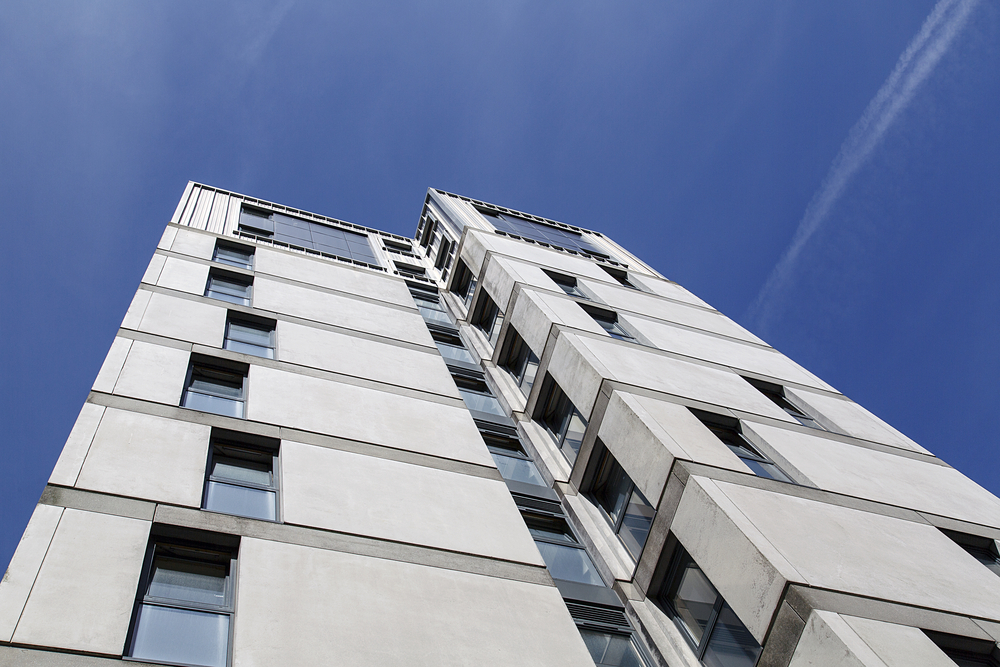
This is the view of many in the mortgage industry and those representing leaseholders who are concerned because the fund only scratches the surface of the £15 billion estimated cost to rectify unsafe cladding on high rises.
Most have welcomed the announcement by housing secretary Robert Jenrick of a further £3.5 billion in funding, which brings total support pledged by the government to £5 billion.
Indeed, in a joint statement the Building Societies Association and UK Finance representing lenders said they ‘welcomed the positive steps’ taken by the government and thought these would improve the position for many leaseholders.
But this has been offset with widespread criticism. While many thought the additional £3.5 billion sum was insufficient, there was also concern for those living in blocks which were lower than 18 metres who would not be eligible for the funding.
The government said these leaseholders could take out a loan to make changes and would not need to pay more than £50 per month in repayments.
‘Disappointing’
Kate Davies, executive director of the Intermediary Mortgage Lenders Association (IMLA), said with estimated costs likely to exceed £15 billion, there needed to be more of ‘giant leap’ to address this ‘awful’ issue swiftly and effectively.
She added: “That may sound like a huge amount – but just to put it into context – banks collectively paid out over £55 billion in compensation to victims of PPI mis-selling – which cannot be condoned, but which did not pose a risk to lives or property.
“It’s also disappointing that this support will only apply to buildings over 18 metres high. We know that many flat owners are trapped in stalemate situations where inspections have revealed safety issues which are going to need remediation.”
She said the financing scheme would provide some help but thought it was ‘unacceptable’ leaseholders should ultimately be expected to foot the bill for shoddy workmanship.
Andrew Montlake, managing director at mortgage broker, Coreco, echoed IMLA’s view. He said: “Asking people to pay for mistakes they didn’t make is an absolute travesty and one of this government’s biggest failures yet.
“When you buy a home, you expect it to have been built safely and should not have to pay a penny if it hasn’t.”
He added: “Hundreds of thousands of people are now mortgage prisoners, unable to sell and in some cases facing financial ruin because of this outrage.”
Taxing developers
Meanwhile the building industry hit out because some of the money for the fund would come from developers via a new tax on builders which will come into force in 2022.
There are also plans to introduce a levy for developers when they apply for planning permission to build high rise blocks in England.
Andrew Southern, chairman of property developer Southern Grove, said: “Taxing developers, most of whom weren’t responsible for the cladding crisis, is just laughable.
“Why should a company that has never installed dangerous cladding, and perhaps never built high rise blocks in the past, be tarred with the same brush and penalised when they’re no more responsible for this scandal than those in other sectors building cars, running our hospitals and educating our children.
“This sort of regressive tax will only stagnate housebuilding, which is the exact opposite of what the UK needs. By applying it only to the largest developers building the tallest buildings, it will also disincentivise creation of housing in the high density areas that are badly in need of new stock.”
EWS1 forms
As part of yesterday’s announcement Jenrick also revealed the government was ‘working towards’ a targeted, state-backed indemnity scheme for qualified professionals such as valuers to enable them to obtain professional indemnity insurance (PII) for the completion of EWS1 forms.
These enable building owners to commission an assessment of fire safety on a building’s external walls.
Gary Strong, global building standards director at RICS, explained what this would mean for the mortgage lenders and surveyors.
“The lack of affordable professional indemnity insurance (PII) is a very serious problem affecting many professions at this time, creating real world difficulties for consumers,” he said.
“It is especially acute for professionals, such as chartered surveyors, who work in the built environment and are potentially exposed to fire safety related insurance claims.
“RICS has been working intensively with the government and the insurance industry to highlight the problem and press for a solution.
“The government’s firm commitment to intervene in the insurance market, through a government backed PII product is to be welcomed and will, no doubt, increase the number of professionals able to complete external wall assessments, relieving the bottlenecks that currently exist .
“It will mean that the chartered surveying professionals we are upskilling to complete EWS1 forms, creating additional capacity in the market through the EWS assessment training programme, have surety that they will be able to gain PII.
“This will be welcome news to leaseholders and homebuyers. We will continue to work with all parties to ensure the commitment is delivered on, urgently.”



